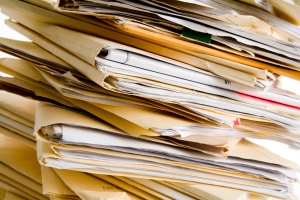 When’s the last time you took a peek at the filing cabinets in your home office? A lifetime of financial matters means accumulating a lifetime of documents. Let’s get a grip on things and whittle down the mess. Below is a list of the financial documents you should keep and for how long.
When’s the last time you took a peek at the filing cabinets in your home office? A lifetime of financial matters means accumulating a lifetime of documents. Let’s get a grip on things and whittle down the mess. Below is a list of the financial documents you should keep and for how long.
- Tax returns. The IRS recommends keeping these for at least three years.
- Investments. Just like the tax returns, keep capital gains tax reports and 1099 forms for at least three years.
- 401(k) statements. Save the end of year and quarterly statements for the current year. After that, shred them.
- Pay stubs, credit card, and bank statements. If all is well with your accounts (they are balanced and there is no fraud) go ahead and get rid of these items.
- Loans. Keep one statement with your current balance. If you have paid the loan off, keep the final statement for at least seven years.
- Insurance policies. Keep them until the policy is no longer in use.
- Medical records. Medical bills from your insurance, hospital bills and other medical-related statements should be kept for five years.
- Real estate records. Keep any purchase, sale or home improvement receipts for as long as you own the underlying asset.
Getting organized is an important step in getting on top of your finances – happy organizing!
*Article courtesy of Chris O’Shea of SavvyMoney.com.
